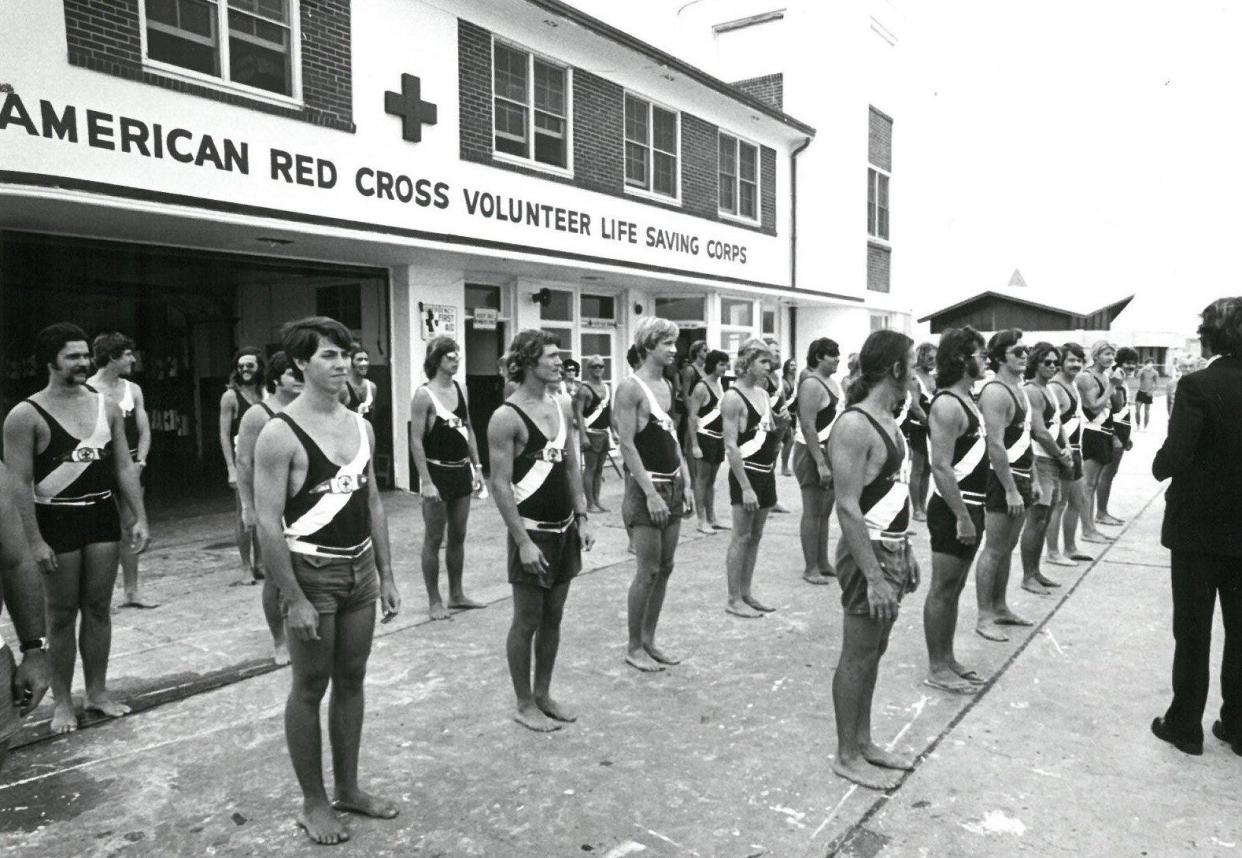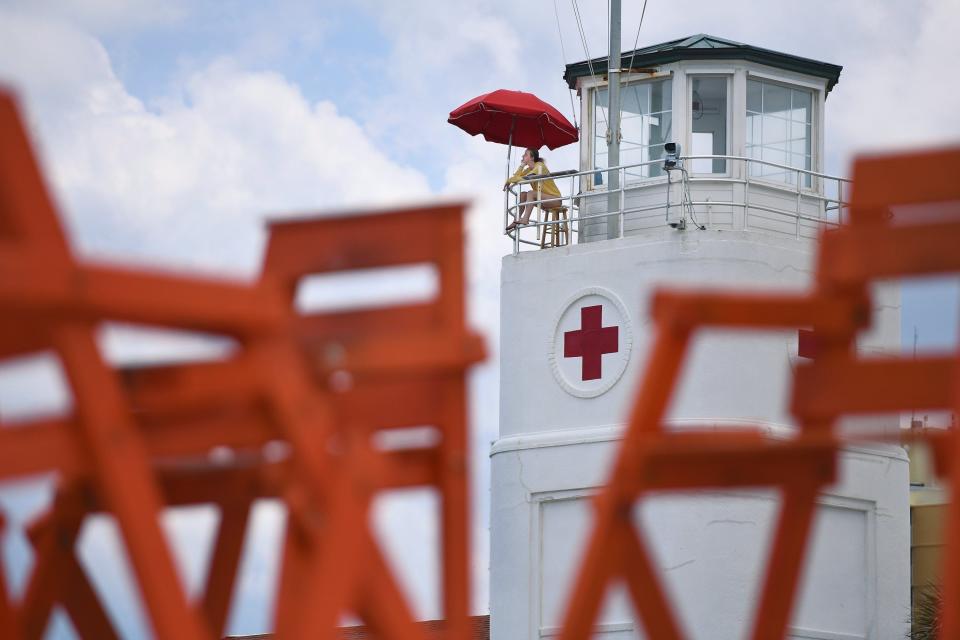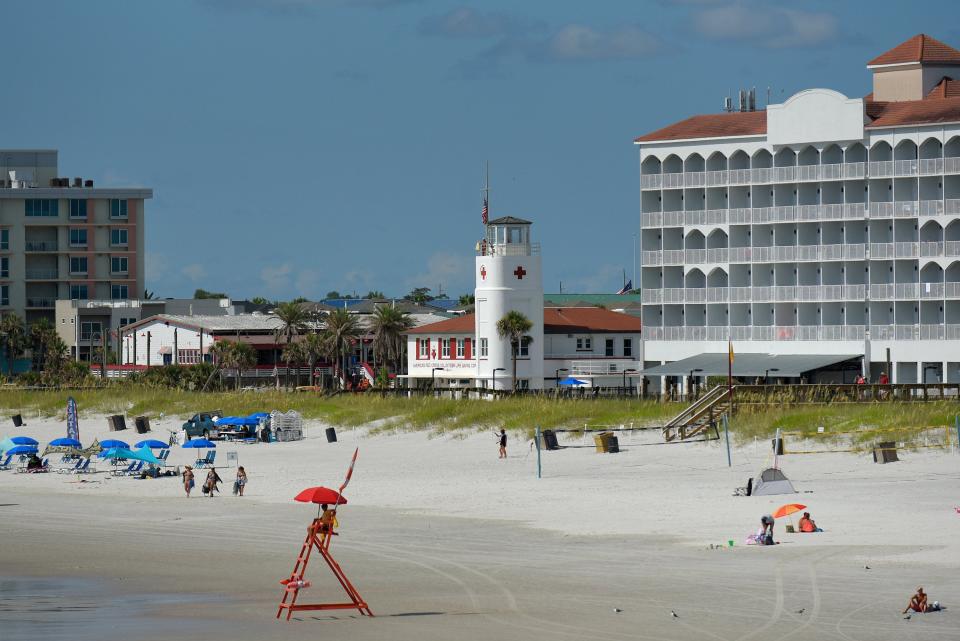Treading water: Jacksonville Beach turns down ballot item to put volunteer lifeguards back to work

Voters in Jacksonville Beach will not be voting at the city's next election to determine the fate of the Volunteer Life Saving Corps, which has patrolled the beach there since 1912.
In an emotionally charged meeting Monday, the Jacksonville Beach City Council unanimously turned down a proposed ballot referendum that would have given voters in November the chance to approve having volunteer lifeguards go back on duty alongside paid Jacksonville Beach Ocean Rescue guards.
Council members said they were concerned the referendum was not legally valid for several reasons.
On the beach: Who will be watching over Jacksonville beachgoers this summer as volunteer lifeguard tradition ends?
Lifeguarding: Traditions of volunteer guards run deep, 106 years deep
Chief among them was that it would go against a Department of Labor ruling that fined the city for violating the Fair Labor Standards Act's minimum wage and overtime laws for allowing Ocean Rescue lifeguards to volunteer on Sundays and holidays without pay.
The city says that decision led to them locking volunteer guards out of the oceanfront lifeguard tower in April and shifting to paid guards seven days a week.
That all came about after a former Life Saving Corps volunteer and Ocean Rescue employee filed a lawsuit against the city over the practice of unpaid work.
Long recognized tradition
For decades the city has used paid guards from the municipal Jacksonville Beach Ocean Rescue for six days a week during beach season.
On Sundays and holidays, however, members of the Volunteer Life Saving Corps — many of whom were in Ocean Rescue as well — put on their vintage-style blue suits and volunteered to work without pay.
Ocean Rescue and the volunteer corps shared the use of the historic four-story lifeguard tower for years until the volunteers were recently locked out.
The practice has been a big part of Jacksonville Beach's history, and that legacy is treasured by many at the Beaches and beyond, something that council members on Monday acknowledged repeatedly.

Council member Fernando Meza was among those who said they were left with no choice. “We have to adhere to the Department of Labor's standards ... It’s not an easy choice for any of us here on the dais," he said.
Local support
The crowd in council chambers was overwhelming in its support of the volunteer corps, which had needed to collect signatures from at least 10% of Jacksonville Beach's registered voters to put an amendment on the ballot.
The corps said volunteers, in just 17 days, collected 3,820 signatures on a petition representing about 19% of registered voters — almost double the number required.
Vintage Times-Union: In 1979, Jacksonville Beach decided its beach driving days were over
On the boardwalk: During World War II, the Flag boomed, then burned
Jim Emery, president of the volunteer corps' board of directors, told the council Monday that public opinion is clearly on the side of the corps.
“Twenty percent of the voters who elected you made their voices clear ... The people of Jacksonville Beach and the entire Beaches community are watching what you decide," he said.
Property at stake
The referendum, as written, could have also affected the historic American Red Cross Volunteer Life Saving Station, an oceanfront landmark in Jacksonville Beach. The tower was long owned by the American Red Cross, sitting on land deeded to the organization by the city.
The ballot initiative would also have required the city to give title or interest of the building and property to the American Red Cross — something that Mayor Chris Hoffman said could put the future of the building in jeopardy.
The American Red Cross could, she said, decide to sell the building for another use.

The city argues that the volunteer lifeguard corps and the American Red Cross ended their long relationship in 2014. The deed restriction on the property says that if the American Red Cross stops providing lifesaving services for one year, ownership of the building then reverts to the city.
On the morning after the council meeting, Charles Bond, past captain of the corps, said the lifeguards and Red Cross in 2014 restructured their agreement so that the corps would take on its own liability insurance on the beach. But they remain "authorized providers" of the Red Cross, he said.
He said the volunteer corps has been frustrated by the city's lack of communication during the whole controversy. And it's not over, Bond said: On Monday the corps filed a lawsuit asking a judge to review the city's obligation to put the referendum on the ballot.
This article originally appeared on Florida Times-Union: Jacksonville Beach won't put volunteer lifeguards on ballot

